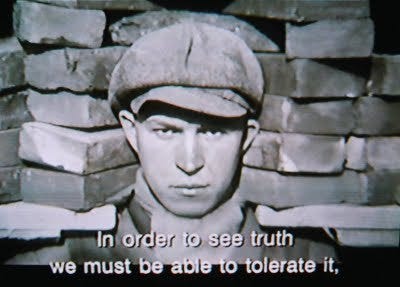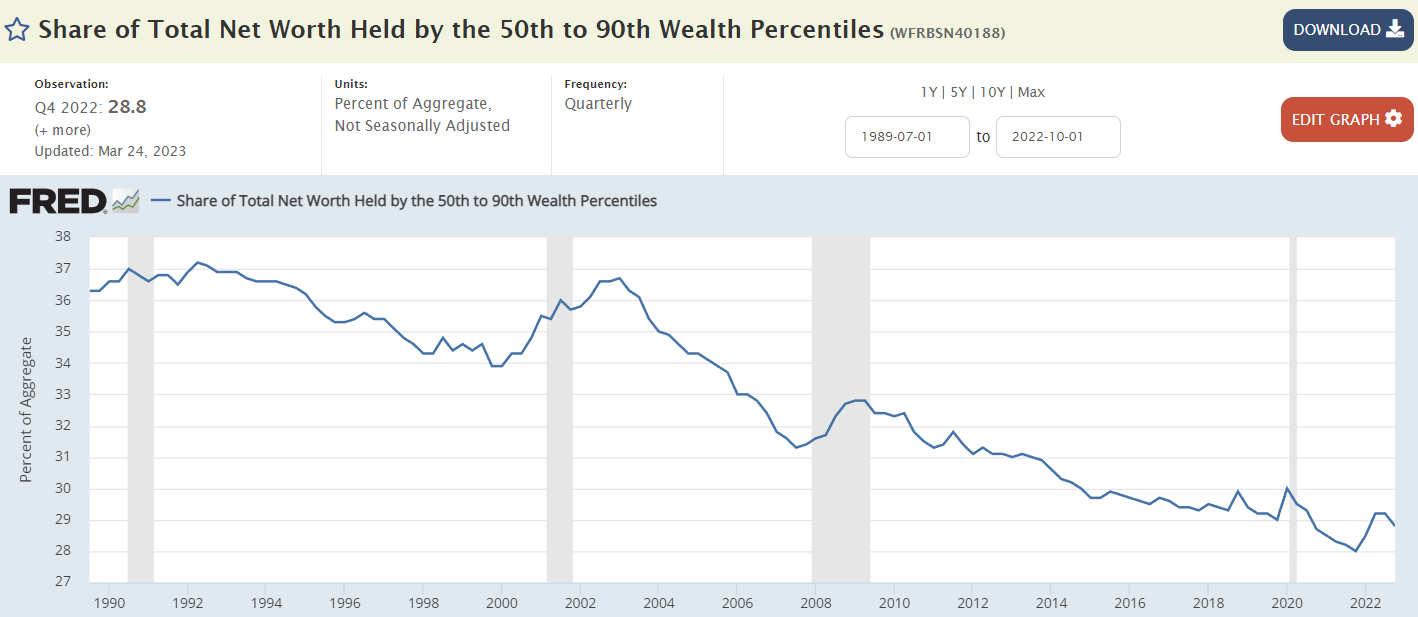“When you look at the wealth disparity today, in my opinion, the biggest accelerant has been QE…it’s not even debatable.”
Stan Druckenmiller, 2018
“In the next recession, QE will be — and should be — the Fed’s main line of defense.”
Noah Smith, February 2020
"The Federal Reserve simply does not understand the risks of asset price bubbles and asset price collapses. It is clear from the data they don’t get it."
Jeremy Grantham
Like Grantham, Druckenmiller is one of the rare billionaires - not Buffett, not Ackman, not Bloomberg, not Sternlicht, not Cooperman, not Fertitta etc. - who explains the dangerous recklessness of the Federal Reserve, talking against his book.
Transcript of Stan Druckenmiller’s keynote speech for the 37th USC Marshall Center for Investment Studies Annual Meeting on May 1, 2023.
(I posted the Youtube version the other day. Here’s the audio.)
As if the irresponsible fiscal behavior wasn’t enough, around 15 years ago the Fed simultaneously decided to start courting with asset bubbles. Around the time I was here, Ben Bernanke embarked on QE2, another round of rapid expansion of the Fed’s balance sheet. The Chairman feared a period like the 1930’s and wanted to buy insurance to avoid deflation by not only keeping policy rates at zero but also by reducing long‐term interest rates. At that time, he assured everyone this would be a temporary measure. I quote: “Monetization would require a permanent increase in the money supply to pay the government’s bills through money creation. What we’re doing here is a temporary measure that will be reversed so that at the end of this process, the money supply will be normalized, the Fed’s balance sheet will be normalized, and there will be no permanent increase, either in money outstanding or in the Fed’s balance sheet.”
Since then, and despite these confident words and several periods of strong growth with very high inflation, the Fed never felt the need to meaningfully reduce its balance sheet. The balance sheet of the Fed today stands at just below $9T, or 10 times as large as before the financial crisis. I repeat… 10 times. This Fed policy has enabled risky behavior from investors, banks and the government… it has driven unprecedented bubbles in both breadth and magnitude. {Slide #7 below} The tech frenzy, the crypto craze, SPACs, the search for yield by investors and also by regional banks (!). While it has truly been an “everything bubble”, nothing symbolized it more than Doge Coin, which started as a joke and reached a market cap of 80bn. As I have repeatedly said, central banks should be in the business of balancing rather than fueling asset prices or risky behavior.
Kiril Sokoloff in conversation with Stanley Druckenmiller I listened to this while driving. Sokoloff is almost unintelligible - bad audio - but Druckenmiller expounds on his keynote speech here, and is sobering as usual.
Druckenmiller again mentions Edward Chancellor’s must-read book, The Price of Time. For a good overview of that book, I highly recommend this review.
Since rich people are the only ones who have sufficient collateral to borrow massive amounts of cheap money, their first access to the money printer allows them to buy and bid up assets in a virtuous cycle. Borrowing begets bidding which begets price appreciation which begets more collateral for borrowing.
"Overpriced assets are the worst thing that can happen to young people, and to society over the long run." - Jeremy Grantham
Stan Druckenmiller explains the Federal Reserve.
Watch now (2 min) | "I don't think there's been any greater engine of inequality than the Federal Reserve Bank of the United States the last 11 years." - Stan Druckenmiller, August 23, 2021
Forget the propaganda narrative - look at the results.
Here are a few quotes from Druckenmiller I’ve collected over the years…
“...I don’t understand why people don’t see QE as the biggest wealth transfer –we’re all worried about rich vs. poor – this is trickle-down monetary policy. Who gets rich from QE? People like me, people in the markets. You think it’s doing anything for 3-year-olds in Harlem?” (2013)
"This is the biggest redistribution of wealth from the middle class and the poor to the rich ever." (2013)
"The reason the debt has exploded-- again, there's no hurdle rate for investment. And when you can borrow money at zero, of course, debt is going to explode.” (2018)
"...can you imagine that Argentina issues a 100-year debt? 100 years at 7%-- I can't even remember a government surviving for five or 10 years, much less 100 years." (2018)
"If I were trying to create a deflationary bust, I would do exactly what the world’s central bankers have been doing the past six years." (2019, before they went truly insane)
"I don't think there's been any greater engine of inequality than the Federal Reserve Bank of the United States the last 11 years." (2021)
"The kids in Harlem, in my opinion, are not benefitting from money printing, but Stan Druckenmiller and other wealthy people are, so for the life of me I can't figure out why the Left is so excited about money printing." (2021)
"We've never had a deflationary bust because inflation was too close to zero, or 1.5% instead of 2% - we've had them because we've had these tremendous asset bubbles” (2022)
“The only thing that really matters in asset allocation is sidestepping some of the pain when the rare, great bubbles break.”
Jeremy Grantham











So f’n cool to see Druck publicly laying his track record on the line so auspiciously. Don’t recall his MSM tour being so offensichtlich but, it’s gotta be freaking out Fund Management & IB’ers by providing clarity on time & outcome & alternatives within a designed period of time (next 12mn). All for f’n free.
Imagine if he is anywhere near close to his forecasts? Bankers, brokers, who run money for fees & F it up, get to eat a SS.
Where am I going w/ this? If Druck strikes out, he has nothing to lose b/c he’s not beholden to shareholders. If he hits a double, triple or gone run, the guy goes down in financial history as not only a GOAT but, a man who brought a clear message to the common man.
Go for it Hombre 😻💪🎯
I went to buy a hot dog at the stand today outside the Home Depot. 50% price increase. When I asked why, the weiner maestro explained that because Jerome Powell won’t directly monetize BREIT redemptions- meat prices were heading one direction. And it ain’t lookin pretty.
After gathering a few others in the parking lot - we all didn’t speak English but agreed unanimously that our red line was if ketchup and mustard were no longer offered gratis- that every brat was getting dumped in the Boston harbor that night.